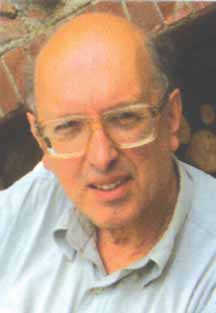 |
From Certainty to Uncertainty Friday, December 6th “We have been guilty of oversimplifying the world in so many fields of knowledge.” |
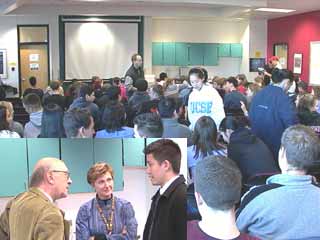 Dr. F. David Peat at Southridge High School |
Dr. F. David Peat Pari Center for New Learning “How we see the world influences the way we act towards it and to those around us. Modern science, which had its origins in Galileo and Newton, has had an enormous influence on this perception. In particular, it gave us the illusion that we stand as impartial observers who predict and control the events around us - not only in the material world, but also at the levels of society and individuals. And in those cases in which our predictions are not fulfilled ever more control must be exerted on what are seen as mistakes or errors. “The hubris connected with this vision of the world reached its peak in the year 1900 when the President of England’s Royal Society declared that science had now discovered everything of importance there was to know about the natural world. Yet in the decades that followed, this dream of the certainty of knowledge was shattered. In place of the observers of the cosmos we became participators. Gradually a philosophy of prediction and control is being replaced by one of individual responsibility and acceptance of our limits. The modern world seeks to heal the divisions that have been established between humanity and nature, science and the arts and matter and spirit.” Dr. David Peat worked as a theoretical physicist in Canada, looking at quantum theory and general relativity. His long-term friendship with David Bohm involved an exploration of ideas in physics, space, time and the nature of consciousness. With Leroy Little Bear, David also organized a series of dialogue circles with Native American Elders and Western scientists. Peat is the author of over twenty books including Science, Order and Creativity (with David Bohm); Synchronicity: The Bridge between Matter and Mind; The Blackwinged Night: Creativity in Nature and Mind; and Lighting the Seventh Fire: The Spiritual Ways, Healing and Science of the Native American. |
The modern world seeks to heal the divisions that have been established between humanity and nature, science and the arts and matter and spirit. Peat's Ideas Seven Life Lessons of CHAOS If you have ever felt your life was out of control and headed toward chaos, science has an important message: Life is chaos, and that's a very exciting thing! In this eye-opening book, John Briggs and E David Peat reveal seven enlightening lessons for embracing the chaos of daily life. BE CREATIVE: engage with chaos to find imaginative new solutions and live more dynamically USE BUTTERFLY POWER: let chaos grow local efforts into global results Go WITH THE FLOW: use chaos to work collectively with others EXPLORE WHAT'S BETWEEN: discover life's rich subtleties and avoid the traps of stereotypes SEE THE ART OF THE WORLD: appreciate the beauty of life's chaos LIVE WITHIN TimF: utilize time's hidden depths REJOIN THE WHOLE: realize our fractal connectedness to each other and the world -------------------------------------------------- Life is impossible to control -instead of fighting this truth, Seven Life Lessons of Chaos shows you how to accept, celebrate, and use it to live life to its fullest. "Eloquent and utterly delightful." -Fritjof Capra, author of The Tao of Physics and The Web of Life "Makes chaos not only understandable but actually usable. These seven lessons are worth taking- and taking to heart." -Ervin Laszlo, author of The Whispering Pond |
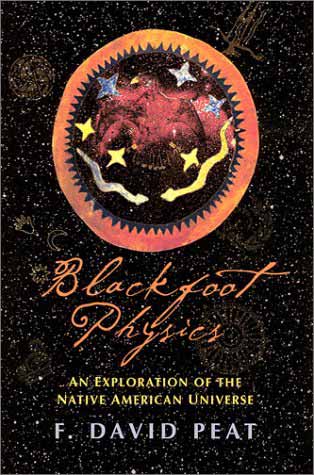 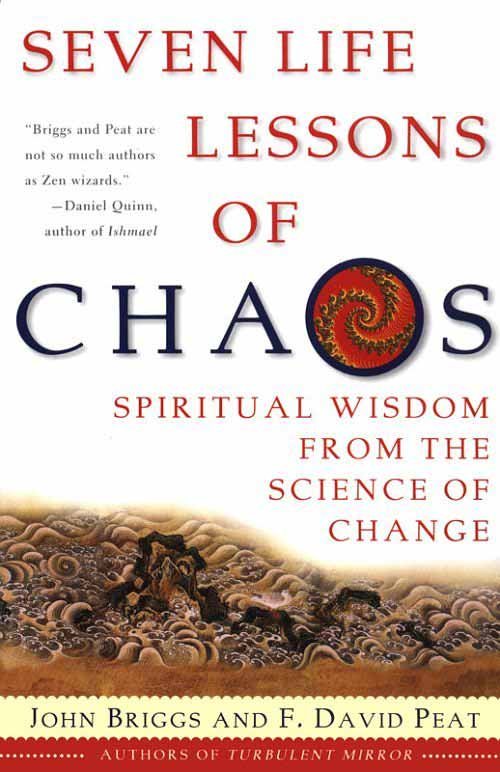 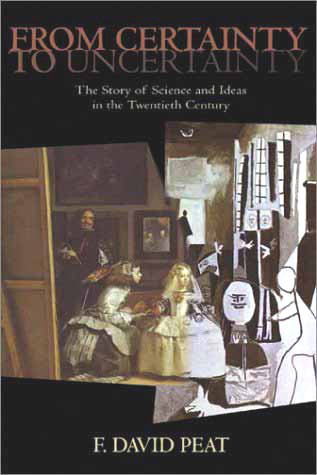 |